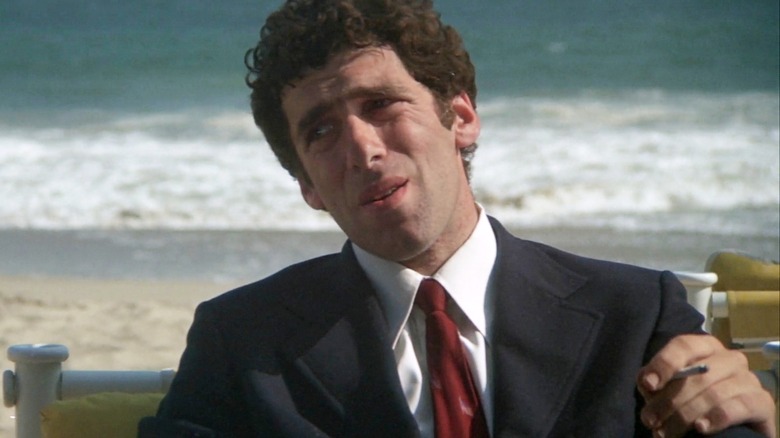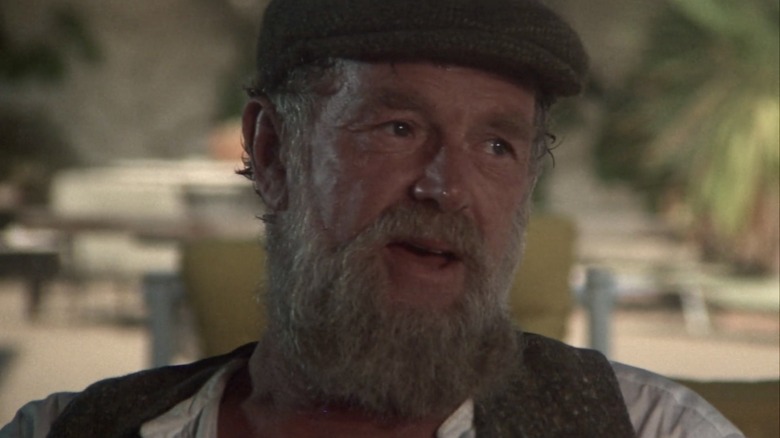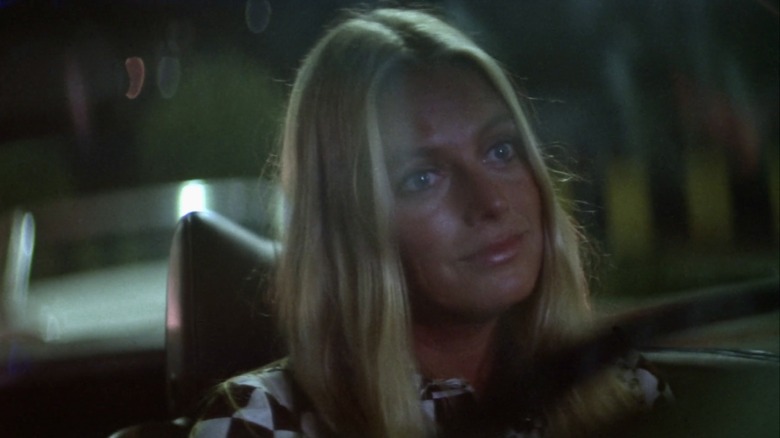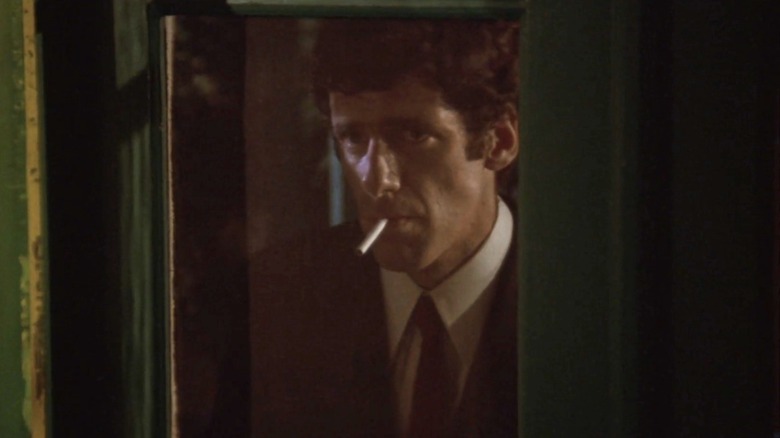The Daily Stream: Say Hello To The New Year With Robert Altman's The Long Goodbye
(Welcome to The Daily Stream, an ongoing series in which the /Film team shares what they've been watching, why it's worth checking out, and where you can stream it.)
The Movie: "The Long Goodbye"
Where You Can Stream It: DirecTV
The Pitch: Philip Marlowe, the weary, wisecracking P.I. from the stories of Raymond Chandler, gets updated for the New Hollywood era and drawn into a mystery among cats, cold-blooded killers, and quirky Californians.
"Noir" might mean black, but with "The Long Goodbye," Robert Altman crafted a colorful neo-noir masterpiece, one that is now in the National Film Registry and holds a 94% rating on Rotten Tomatoes. The early-to-mid 1970s were a fertile period for Altman, who during that time turned out classics like "M*A*S*H," "McCabe & Mrs. Miller," and "Nashville." With "The Long Goodbye," he and screenwriter Leigh Brackett took the characters and events of Chandler's 1953 novel and situated them in a 1973 film with a contemporary L.A. setting.
Brackett helped adapt Marlowe's first adventure, "The Big Sleep," into a 1946 movie starring Humphrey Bogart. "The Long Goodbye" was her last solo screenwriting endeavor before her final film, "The Empire Strikes Back," which left first-timer Lawrence Kasdan to rewrite her script after she died. That film also reunited her in the credits with composer John Williams, who collaborated with Johnny Mercer on the many different arrangements of this film's title song.
Elliot Gould ("Ocean's Eleven") plays Marlowe as a man out of time, one who sticks out in his suit and "JCPenney tie" and almost always wears them, even when he's on the beach. Altman called his version of the character "Rip Van Marlowe," and when we first meet him, he is waking into a world that has passed him by.
Why It's Essential Viewing
"The Long Goodbye" is a mood, and it's one that is especially relatable at the moment as so many of us are floating into a fresh year with the baggage of the last two not entirely behind us. If you are literally or figuratively hungover from New Year's Eve and indeed all of 2020 and 2021, then you might be able to identify with the disheveled Marlowe, as he stirs in bed in his dingy apartment and immediately begins muttering to himself while his cat meows for food.
Marlowe meets his circumstances with wry humor and the movie meets noir tradition with melancholy and a satirical gleam in its eye. Our hero is a loner but he's also loyal to a fault, the kind of guy who will dive into the ocean to save a drowning man or drive a fugitive friend to Tijuana with no questions asked.
"He's got a girl and I got a cat," Marlowe says at one point. That cat is perhaps his only true friend, and in addition to functioning as nature's alarm clock, it's a picky eater, so much so that he tries to trick it by transferring off-brand cat food to a can with its favorite label on it.
Outside his apartment, Marlowe encounters an array of zany characters, from topless neighbors doing yoga poses to a gangster with a garrulous streak who is all too eager for everyone to strip down, too (all the better to expose a young Arnold Schwarzenegger's bodybuilder physique). There's also the guard of a gated community who lives for the chance to do impersonations. Sterling Hayden, fresh off his 1972 appearance as the doomed police captain in "The Godfather," channels Ernest Hemingway in his role as Roger Wade, a bearded, alcoholic, beach-bum writer in a flat cap.
City of Ensembles
Persecuted by the police and usually seen with a cigarette or toothpick hanging out of his mouth, the chain-smoking Marlowe and that gumshoe get-up of his are incongruous with their surroundings, especially when he has the waves of the Pacific Ocean crashing behind him. There's a scene where his reflection in the glass is superimposed over Wade and his wife, Eileen (Nina van Pallandt), in their Malibu beach house. At that moment, it's as if Marlowe is the ghost of mystery movies past hovering over the present.
Los Angeles is a sprawling city where a car is practically a prerequisite, but in "The Long Goodbye," it becomes a small, interconnected world where you're liable to run into your supermarket clerk in jail. Forget that nickname, the City of Angels; in Altman's hands, this place is the City of Ensembles.
You can trace a line from his films to Paul Thomas Anderson's own ensemble-driven San Fernando Valley dramas, and not just because Anderson served as the standby director for "A Prairie Home Companion." Henry Gibson, who plays the doctor of a detox clinic in "The Long Goodbye," would appear later as the rival for the bartender's affections opposite William Macy in "Magnolia." That character spoke of "dullness," but as chill and languidly paced as it might be, there's never a dull moment in "The Long Goodbye."
In "Nashville," Altman presented a broad tableau of life in a major American city, and in some ways, "The Long Goodbye" is no different. The plot structure here is still loose, but it's less scattered in focus because this is more "The Player" than "Short Cuts." It's a film that orbits a clear protagonist and there is a central murder that drives the story and acts as a sort of meandering narrative through-line.
A 5,000-Dollar Bill with Elliot Gould's Face on It
Gould's Marlowe is Bogart without Bacall (as in, Lauren Bacall, Bogie's co-star in "The Big Sleep" and real-life wife). He's the bridge between black-and-white film noir, where a snappy private investigator might identify himself as a "shamus," and later offbeat yarns like "The Big Lebowski" or "Inherent Vice," where the detective is now just a dude and bachelor with brain fog who stumbles pell-mell through seemingly unrelated happenings until they converge in a moment of truth or epiphany.
In "The Long Goodbye," when the mystery resolves itself at the end, it turns out the answer was simple and right under our noses from the beginning. Marlowe, the "born loser" and '40s relic, reacts in a way that grounds him squarely in the unsentimental frontier of New Hollywood cinema with its iconoclasm and gritty '70s realism. The film is of its time, and this can be felt, also, when it strays into uncomfortable territory with blackface humor (or perhaps social commentary, courtesy of fingerprinting ink?) and an explosion of shocking violence against a woman.
"The Long Goodbye" carries an air of whimsy even as it exposes the cracks in a crumbling society where corruption is universal and the old bonds of friendship no longer hold true. Cynical yet sweet, this movie is a 5,000-dollar bill that Altman and company laid at our feet, with Gould's expressive face on it in place of a dead president's. The first time I saw it, I was pleasantly surprised, if not outright blindsided by its low-key brilliance. If you want to start the New Year off right, movie-wise, "The Long Goodbye" is like an old harmonica tune that might get your feet moving and leave you humming, "Hooray for Hollywood."



